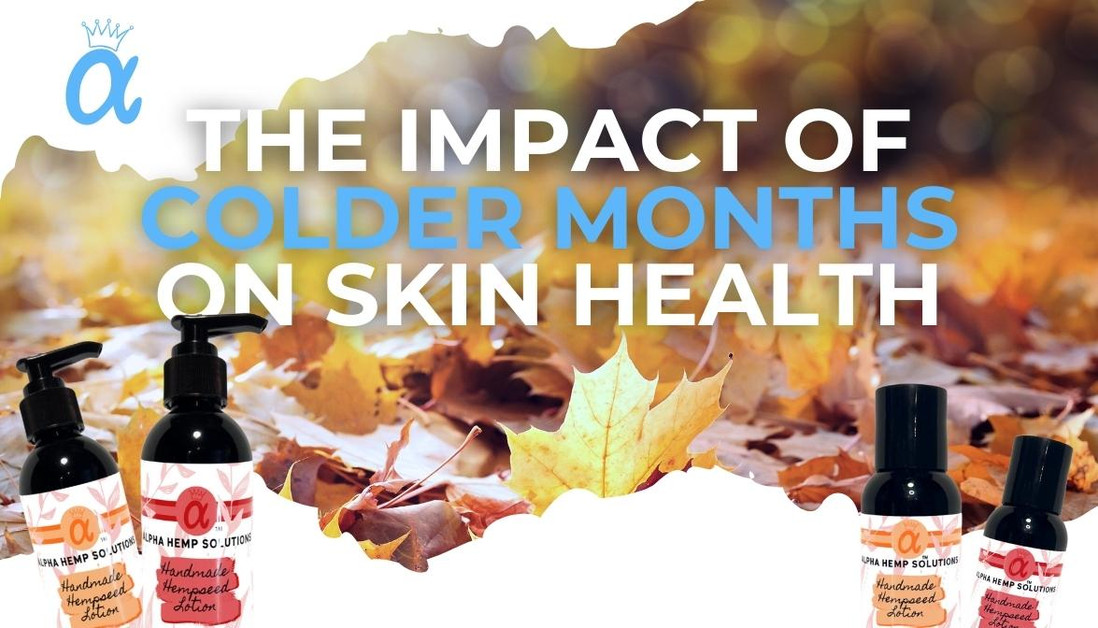Nov 2nd 2023
The Impact of Colder Months on Skin Health
When the chilly winds of autumn start blowing, there's more than just the wardrobe that needs an overhaul. Our skin, our body's largest organ, also requires a shift in its care regimen. As the transition from summer to winter takes place, the natural vs. synthetic preservative debate becomes ever more relevant.

The Impact of Colder Months on Skin Health:
Crisp, cold air might be refreshing after the warmth of summer, but it's not always kind to our skin. As temperatures drop, the humidity levels tend to follow, leading to a decrease in the skin's natural moisture barrier. This can result in a myriad of skin issues such as dryness, redness, and increased sensitivity.
Chapped lips, rough hands, and flaky patches; these are tell-tale signs that winter has seized our skin. With such environmental challenges, it's paramount that the products we apply aren't exacerbating the situation.
Elderberry: Nature’s Bountiful Preservative:
Enter elderberry, a small, dark fruit that has been cherished in traditional skincare for its nourishing and preserving properties. Elderberries contain natural acids that inhibit the growth of bacteria, making them an excellent natural preservative for skincare products. But it's not just about preservation; these tiny berries are loaded with vitamins and antioxidants, making them beneficial for skin health overall.
Moreover, the gentle nature of elderberry ensures that while it guards your product from spoilage, it does not disrupt the skin's natural balance, a trait that is of utmost importance, especially during harsh weather conditions.
The Downside of Synthetic Ingredients:
It's no secret that a vast number of commercial skincare products are laden with synthetic ingredients. While they might promise longevity for the products, the potential repercussions on the skin, especially during colder months, can't be ignored. Some synthetic preservatives, like parabens and phthalates, have been linked to skin irritation and dryness. In the midst of winter, when your skin is already gasping for hydration, the last thing it needs is a product stripping away its natural oils.
Furthermore, the long-term implications of these synthetic ingredients remain a topic of debate among dermatologists and health experts. While not all synthetics are harmful, understanding and recognizing the ones that are can be a daunting task for the average consumer.
More Than Just a Preservative: The Multifaceted Benefits of Elderberry:
While elderberry's preservative properties are commendable, this berry has much more to offer. Rich in anthocyanins, elderberries boast potent antioxidant properties, which not only help combat premature aging but also aid in repairing skin damage.
Beyond skincare, elderberries have been linked to numerous health benefits, from boosting the immune system to potentially alleviating symptoms of the common cold and flu. In essence, integrating elderberry into your skincare routine is not just about preserving the product; it's about preserving and enhancing your skin's health and vibrancy.
In conclusion, as we gear up to face the colder months, it's worth investing time and thought into the products we use on our skin. With ingredients like elderberry offering natural protection and nourishment, it's a reminder that nature often holds the best solutions. So, next time you're shopping for skincare, remember to look beyond just moisturizing properties; consider the ingredients and the multifaceted benefits they bring.

